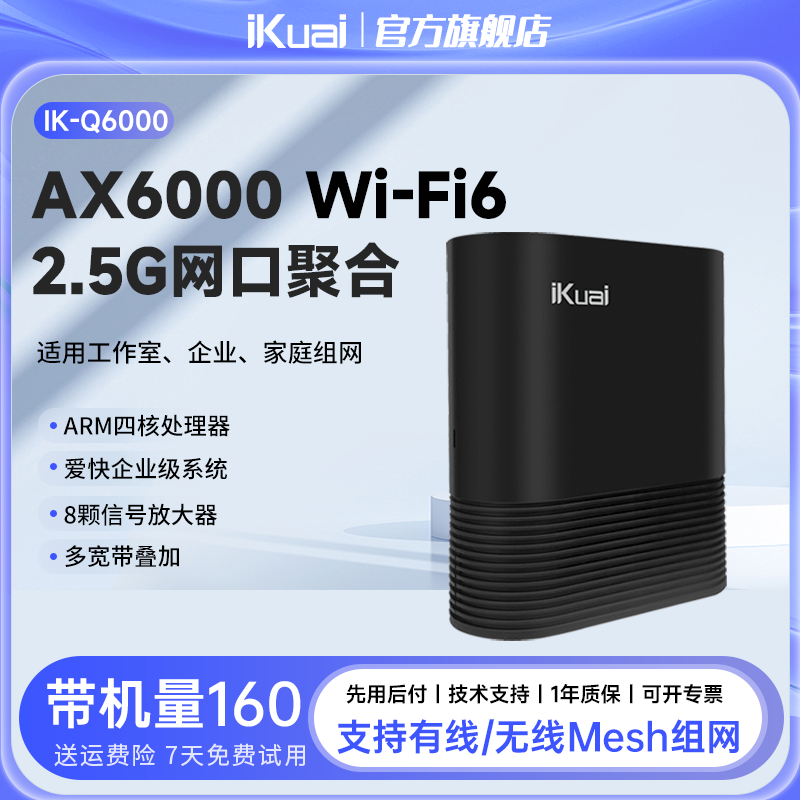路由器全解析:功能、类型与选择
观想沮
2024-11-04 20:31:07
0次
路由器全解析:功能、类型与选择
一、路由器功能解析
路由器是现代家庭和办公室网络中不可或缺的设备,它扮演着连接互联网和内部网络的重要角色。以下是路由器的主要功能:
1. 连接网络:路由器能够将局域网(LAN)与广域网(WAN)连接起来,使得用户可以通过它访问互联网。
2. 数据转发:路由器负责将数据包从源地址转发到目标地址,确保数据的顺畅传输。
3. 网络安全:路由器可以提供防火墙功能,阻挡外部攻击,保护内部网络的安全。
4. 带宽管理:路由器可以对网络带宽进行管理,保证不同设备之间的公平访问。
5. 无线功能:许多现代路由器还具有无线功能,提供Wi-Fi连接,方便用户使用移动设备上网。
二、路由器类型
根据不同的使用环境和需求,路由器有多种类型。常见的路由器类型包括:
1. 家庭路由器:适合家庭使用,具有简单的设置和操作界面,通常具有无线功能。
2. 企业级路由器:适用于大型企业和机构,具有高性能、高可靠性和丰富的管理功能。
3. 无线路由器:具有Wi-Fi功能,可以提供无线局域网连接。
4. 智能路由器:具有更智能的管理和监控功能,如远程控制、流量统计等。
5. 光纤路由器:适用于光纤网络环境,支持高速数据传输。
三、如何选择路由器 选择一款合适的路由器需要考虑以下几个方面: 1. 使用环境:根据使用环境选择适合的路由器类型,如家庭、企业或公共场所。 2. 网络需求:根据网络需求选择具有适当性能和功能的路由器。 3. 品牌与价格:选择知名品牌和合理的价格范围,确保路由器的质量和售后服务。 4. 无线标准:考虑Wi-Fi标准(如802.11n、802.11ac或802.11ax)以及无线频段(如2.4GHz或5GHz),确保兼容性和性能。 5. 安全性能:考虑路由器的安全性能,如防火墙功能和加密方式等。 6. 售后服务:选择提供良好售后服务的品牌,以便在遇到问题时能够及时解决。 Router Comprehensive Analysis: Functions, Types and Selection I. Router Function Analysis The router is an indispensable device in modern home and office networks, playing a crucial role in connecting to the internet and internal networks. Here are the main functions of a router: 1. Network Connection: Routers connect local area networks (LANs) to wide area networks (WANs), allowing users to access the internet through it. 2. Data Forwarding: Routers are responsible for forwarding data packets from source addresses to destination addresses, ensuring smooth data transmission. 3. Network Security: Routers can provide firewall functionality to block external attacks and protect the security of the internal network. 4. Bandwidth Management: Routers can manage network bandwidth to ensure fair access among different devices. 5. Wireless Functionality: Many modern routers also have wireless functionality, providing Wi-Fi connections for easy internet access using mobile devices. II. Types of Routers There are various types of routers based on different usage environments and needs. Common router types include: 1. Home routers: Suitable for home use with a simple setup and user interface, often with wireless functionality. 2. Enterprise-level routers: Designed for large businesses and institutions, with high performance, reliability, and rich management functions. 3. Wireless routers: Have Wi-Fi functionality, providing wireless local area network connections. 4. Smart routers: Have more intelligent management and monitoring functions, such as remote control and traffic statistics. 5. Fiber routers: Suitable for fiber network environments, supporting high-speed data transmission. III. How to Choose a Router?When selecting a router, consider the following aspects:
1. Usage Environment: Choose a router type based on the usage environment, such as home, business, or public places. 2. Network Needs: Select a router with appropriate performance and features based on network requirements. 3. Brand and Price: Choose a reputable brand and a reasonable price range to ensure the quality and after-sales service of the router. 4. Wireless Standards: Consider Wi-Fi standards (such as 802.11n, 802.11ac, or 802.11ax) and wireless frequency bands (such as 2.4GHz or 5GHz) to ensure compatibility and performance. 5. Security Performance: Consider the security performance of the router, such as firewall functionality and encryption methods. 6. After-sales Service: Choose a brand that provides good after-sales service so that problems can be resolved
上一篇:路由器的升级与固件更新技巧
相关内容
热门资讯
路由器的进化史:从有线到无线,...
路由器进化史:从有线到无线,再到智能路由器,科技发展推动了路由器的变革。这种变化为人们提供更便捷、高...
路由器市场大解析:2023年热...
路由器市场解析:2023年热门型号比较,竞争激烈。各大品牌如华为、小米、TP-Link和苹果推出各有...
"家用与商用路由器的区别及选择...
本文介绍了家用与商用路由器的区别,并提供了选择建议。家用路由器适合家庭用户,需关注稳定性和易用性;商...
路由器故障排查与解决:常见问题...
本文介绍了路由器常见问题及处理方法,包括无法联网、信号弱、无法登录管理界面、掉线及设备连接限制等问题...
"路由器技术解析:如何提升网络...
本文介绍了提升网络速度与稳定性的技术手段,包括硬件升级、信道优化、智能QoS等措施,通过增强天线信号...
路由器技术发展趋势与未来展望
摘要:
本文探讨了路由器技术的发展趋势与未来展望。随着硬件升级、软件定义网络和网络功能虚拟化、安全...
高速稳定:路由器技术解析与性能...
摘要:
本文详细解析了路由器技术,包括硬件和软件技术,并对不同路由器的传输速度、稳定性和信号性能进...
路由器使用技巧大放送:提升网络...
本文分享了提升路由器网络速度与稳定性的技巧,包括定期重启路由器、调整信道与频段、优化设备位置、使用更...
全面解析不同类型路由器的优缺点
本文解析了不同类型路由器的优缺点,包括家庭路由器、企业级路由器和无线路由器。每种路由器都有其特定应用...
"深度解析:路由器的关键参数及...
摘要:
本文深入解析了路由器的关键参数和功能,包括无线标准、频段、处理器和内存、端口数量和类型等,...



